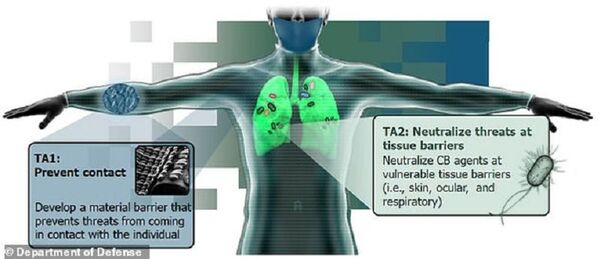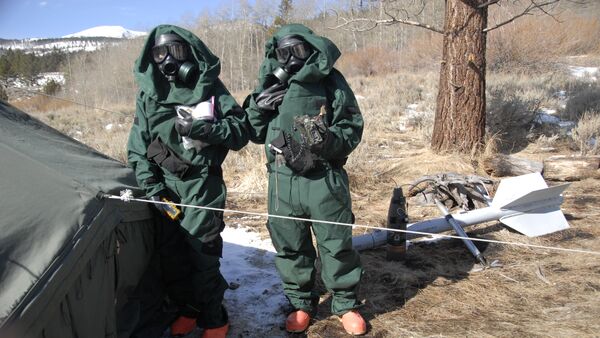The Pentagon’s Defence Advanced Research Projects Agency (DARPA) said in a report on Wednesday that it is developing a Personalized Protective Biosystem (PPB), which is a smart suit that will provide a '100 percent' survival rate for US servicemen during a potential biological attack.
The report emphasised that “molecular, nano, and other material solutions, when coupled with lessons from natural systems, will be integral for PPB technologies to protect against current and future CB [chemical and biological] threats.
In particular, the suit will use “cues” from such natural systems as shark’s skin which keeps microorganisms from attaching to its surface, according to the report.
It referred to the “current threat environment” which includes “broadly acting, highly pathogenic, and sometimes immediately lethal threats that are capable of entering the body via multiple pathways, including skin, airway, ocular, and the gastrointestinal tract.”
In this vein, the PPB is designed to protect the wearer against 11 different agents, including anthrax, chlorine, influenza , sulphur mustards and viral hemorrhagics.

Unlike current bulky protective suits equipped with respiration devices that can limit a soldier’s mobility, the PPB will be lightweight and designed with smart materials which will neutralise deadly agents in case of contact with skin or eyes.
DARPA’s 60-day plan for testing and delivering the smart suit specifically stipulates the use of “robotic humanoid manikins” for at least 30 days with exposures of CB which may last up to 12 hours.




